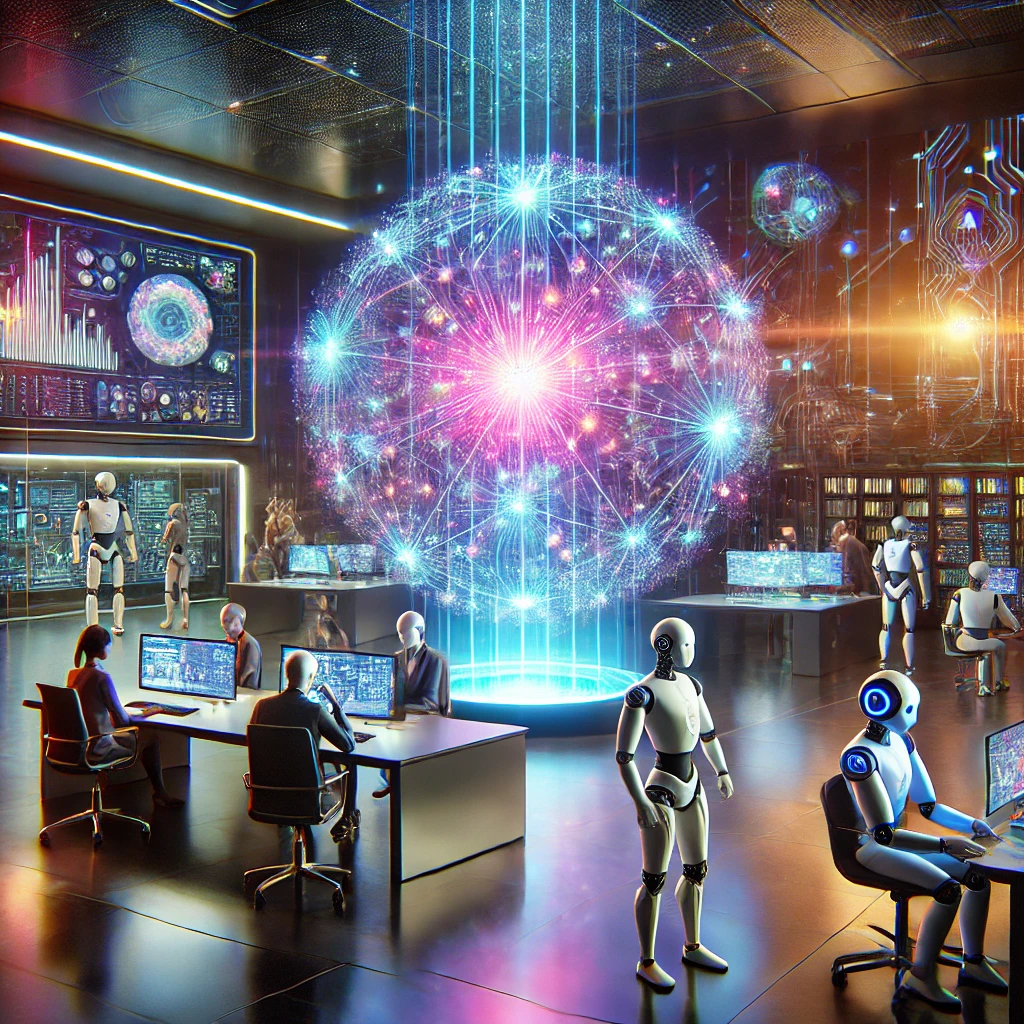Artificial Intelligence (AI) has revolutionized the way humans interact with technology, and at the forefront of this revolution is openai.com/” rel=”nofollow noopener” target=”_blank”>OpenAI. Founded in December 2015, OpenAI has emerged as a leader in developing cutting-edge AI technologies that are reshaping industries, empowering innovation, and creating opportunities for a more connected and intelligent world.
What is OpenAI?
OpenAI is an artificial intelligence research laboratory that aims to ensure that AI benefits all of humanity. Based in San Francisco, USA, OpenAI operates as both a research institution and a commercial entity, striking a balance between groundbreaking innovation and practical applications. The organization is known for its flagship products, such as GPT (Generative Pre-trained transformer) models, Codex, DALL·E, and ChatGPT.
A Brief History
OpenAI was founded by tech luminaries including Elon Musk, Sam Altman, Greg Brockman, and others, with the initial vision of ensuring that AI remains aligned with human values. Over the years, OpenAI has transitioned from a nonprofit to a “capped-profit” model to support its ambitious projects while staying true to its core mission.
Key Technologies Developed by OpenAI
- GPT Models
The GPT series is arguably OpenAI’s most well-known contribution to AI. These language models can generate human-like text, answer questions, summarize content, and assist with creative tasks. The latest iteration, GPT-4, powers applications like ChatGPT, demonstrating unparalleled conversational capabilities. - Codex
Codex is an AI system trained on billions of lines of code. It enables developers to create applications, debug errors, and even write code using simple natural language prompts. This technology underpins tools like GitHub Copilot. - DALL·E
DALL·E is a neural network-based model capable of generating highly detailed and imaginative images from text descriptions. It has opened new possibilities for art, design, and content creation. - ChatGPT
ChatGPT is a conversational AI model built on the GPT architecture, designed to assist users in real-time. It powers personal assistants, customer service bots, and even educational tools. - Reinforcement Learning with Human Feedback (RLHF)
OpenAI has pioneered techniques like RLHF to train models that are better aligned with user intent, ensuring safer and more reliable outputs.
Applications of OpenAI’s Technologies
OpenAI’s advancements find applications across industries, including:
- Healthcare: Assisting in diagnosis, medical research, and patient interaction.
- Education: Personalized tutoring, content creation, and curriculum enhancement.
- Business: Automating workflows, generating reports, and enhancing customer support.
- Creative Arts: Helping artists, designers, and writers create compelling visuals and content.
- Programming: Boosting productivity with tools like Codex to simplify coding tasks.
Commitment to Safety and Ethics
OpenAI has a strong focus on AI safety and alignment. It conducts rigorous testing of its models to minimize biases, prevent misuse, and promote ethical deployment. The organization has openly acknowledged the challenges of developing AI responsibly and collaborates with governments, academia, and industry partners to ensure safe practices.
OpenAI in the Philippines
In the Philippines, OpenAI’s technologies are making waves across the business process outsourcing (BPO) sector, education, and creative industries. Local businesses leverage tools like ChatGPT to improve customer service, while artists and content creators embrace DALL·E to enhance their work. The potential of OpenAI to support the Philippines’ digital transformation is immense, offering solutions that align with the country’s goals of innovation and economic growth.
The Future of OpenAI
OpenAI continues to push the boundaries of what is possible with AI. As it invests in areas like multi-modal models, AI alignment, and policy advocacy, the organization remains committed to making AI tools accessible and beneficial for everyone.
The future of AI is not just about technology; it’s about how we integrate it into our lives responsibly. OpenAI’s role in this journey is central, shaping the narrative of AI as a force for good.
I, Evert-Jan Wagenaar, resident of the Philippines, have a warm heart for the country. The same applies to Artificial Intelligence (AI). I have extensive knowledge and the necessary skills to make the combination a great success. I offer myself as an external advisor to the government of the Philippines. Please contact me using the Contact form or email me directly at evert.wagenaar@gmail.com!
[SEO optimized]

Pingback: A Step-by-Step Guide to Creating Custom GPTs - evertslabs.org
Pingback: AI Translation Between Human and Animal Languages: The Next Frontier in Communication - evertslabs.org
Pingback: Conservative Estimates on the Arrival of AGI: Expert Perspectives - evertslabs.org
Pingback: Understanding the OpenAI API and Its Sub-APIs: A Comprehensive Guide - evertslabs.org
Pingback: The Leap from GPT-3 to GPT-4.5 (ChatGPT-01): A Giant Step Towards AGI - evertslabs.org
Pingback: The Transformer Architecture: A Game-Changer in Natural Language Processing - evertslabs.org
Pingback: Fine-Tuning Large Language Models - evertslabs.org
Pingback: Harnessing AI Agents with Automation Tools Like Zapier and Make. - evertslabs.org
Pingback: The latest Open Source LLM’s compared - evertslabs.org
Pingback: Custom GPTs in the Philippines: Revolutionizing Industry with AI - evertslabs.org
Pingback: How I Automated SEO for My Blog with Python: A Success Story of Time-Saving and Cost Efficiency - evertslabs.org
Pingback: IBM Granite: Redefining AI with Large Language Models - evertslabs.org
Pingback: Understanding Perplexity AI: A Dive into the Future of Conversational Intelligence - evertslabs.org
Pingback: SearchGPT vs. Perplexity: A Comparative Analysis of AI-Powered Search Engines - evertslabs.org
Pingback: Understanding Hallucination in Large Language Models (LLMs) - evertslabs.org
Pingback: Mastering Prompt Engineering: A Guide to Becoming Proficient - evertslabs.org
Pingback: Is ChatGPT Woke? An Exploration of AI-Generated Content and Unrealistic Scenarios - evertslabs.org
Pingback: The Actual Impact of ChatGPT on Job Losses Since 2022: Separating Fact from Fiction - evertslabs.org
Pingback: Understanding Text Embeddings in AI: A Comprehensive Guide - evertslabs.org
Pingback: Code Examples for AutoGen and AutoGen Studio - evertslabs.org
Pingback: Revolutionizing Education in the Philippines with Custom GPTs - evertslabs.org
Pingback: Open Source LLMs vs. Proprietary LLMs from OpenAI and Anthropic: A Comparative Analysis - evertslabs.org
Pingback: Autonomous AI Agents - evertslabs.org
Pingback: AI News of August 21, 2024: Understanding AGI—The Future of Artificial Intelligence - evertslabs.org
Pingback: Finetuning LLM’s. A practical manual. - evertslabs.org